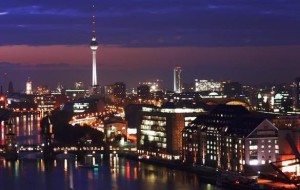Nery Alaev writes about the property market in Germany.
An expert on property has ensconced upon the position of Germany as a real estate market growing in strength, especially thriving cities such as Berlin and Frankfurt.
While the expert concludes that the German capital is no London, it has garnered a major appeal in recent years and has become an increasingly strong prospect.
I’ve chosen to look deeper into this development and find out more.
Societal shifts
The enthusiasm has been brought about by changes not just to Germany’s demographics, but to the buying habits of those demographics. For example, home ownership has grown in the Federal Republic, which is the largest economy in Europe.
Most occupiers in the past were happy to simply rent their properties – this has been effected recently however, by foreign buyers looking for ‘safe havens’ from storms in their own localities among other factors.
This new phenomenon is twinned with an increasing demand from young, upwardly mobile workers for space in growing cities such as the aforementioned Berlin and Frankfurt, as well as Cologne, Munich, Stuttgart and others.
This demand has helped to propel asking prices for properties since the beginning of the decade.
Refugee strength
The refugee crisis, while harrowing, is also proving to be a potential opportunity for the real estate market in Germany.
The introduction of over 1m new people – some of which may never leave Germany, is a clear opportunity for German real estate professionals. This depends, however, on the social status of Germany’s new arrivals and whether they can acclimatise and subsequently gain the capital to get on the real estate ladder in their new homeland.
In summary, the societal uproots that have shaken Germany since the start of the 2010s are a clear opportunity for those in the real estate community.
Nery Alaev
Nery Alaev is the current Director of ESN Investments GmbH, which engages in acquisition and development of commercial and residential property in Germany and Austria.


